Will ‘Wonder Woman’ Fix The DC Film Universe?
At last, positive reviews are rolling in for Wonder Woman, proving even to possibly trend-following critics1 that DC still makes great superhero movies.
In fact, with one notable exception (Suicide Squad), all the DCEU films have been great. Yes, Man of Steel and Batman v Superman: Dawn of Justice (BvS) were controversial and pillaged by critics. But often critical viewers were biased to favor what they assumed they should expect from a superhero movie: e.g. a story that is transparently “fun,” or a story that jumps straight into fully-developed heroic characters without much early challenge to them.
That being said, I do see potential hazards for DC’s new shared superhero film universe. After all, it wouldn’t be fair to offer Ten Ways to Fix the Marvel Cinematic Universe (part 1, part 2) and not give DC the same treatment (yet clearly Marvel’s story is further advanced).
Here are four ways to fix the DC Extended Universe (or DCEU) before it breaks.
1. Don’t treat Wonder Woman like a series ‘course correction.’
This week’s predictable and popular media line is this: “The other movies sucked, and now Wonder Woman will show them how it’s done.” But this line doesn’t even make sense.
 Fact: this new film is just as much part of the same DC film universe as the last three. In fact, the oft-maligned Man of Steel and Batman v Superman director Zack Snyder—the one who’s supposedly making all the heroes brood and murder and be horrible—shares a story credit for Wonder Woman. BvS set up Wonder Woman, right down to the placement of a photo from Wonder Woman (with Gal Gadot and costar Chris Pine) and backstory references.
Fact: this new film is just as much part of the same DC film universe as the last three. In fact, the oft-maligned Man of Steel and Batman v Superman director Zack Snyder—the one who’s supposedly making all the heroes brood and murder and be horrible—shares a story credit for Wonder Woman. BvS set up Wonder Woman, right down to the placement of a photo from Wonder Woman (with Gal Gadot and costar Chris Pine) and backstory references.
So far, the best breakdown of this new myth comes from ScreenRant’s Andrew Dyce:
Man of Steel gets at the heart of the best Superman stories in terms of its premise: he is special at birth, raised into a good man by Earth parents, emerges into the world as a guardian angel, and must defend all of humanity as he struggles to integrate his two selves, born of two worlds. But drop that story into our imperfect world, and it’s filled in with elements of xenophobia, government structures too big to fight, unwinnable scenarios, and the simple fact that sometimes ‘choosing one or the other’ leads to trauma, not closure. […]
On character terms, Diana stands apart from the previous DCEU heroes by simply being not human, and not ‘of’ the modern world. She is one of the only Justice League members to claim that ability, able to see, criticize, and hope to change the world – which she has the luxury of doing, since it played no part in shaping her. If those critical of the DCEU’s prior films want a hero who embodies the kind of optimism, heroism, and nobility that you don’t find anywhere else, Diana is the most likely to fill the void. Because she’s literally from anywhere else.
Clearly, people who malign Snyder as if he personally “hates Superman” or only revels in “grimdark,” redemption-less stories need to revise their tune. Wonder Woman is not a huge “course correction” for this series. Let’s not see it as much. Instead, this is the same ongoing story, yet with a different chapter. When contemporary heroes are shaped and challenged by today’s world with all its dysfunction, the story sure can use a hero who steps out of the mythical past, beyond this world, to challenge the status quo. Seems Diana is just this hero.
If I’m right, the DCEU should stick to its own story and let people finally catch up. Don’t play along with the “course correction” version by critics who seem not to get it.2 And yet:
2. Make sure the stories themselves explain things a little better.
Personally, I like analyzing movies that are meant to be analyzed. Man of Steel and BvS aim for this standard, sometimes overtly with religious imagery and classical references.
And sometimes this is to a fault. I dislike saying this, because I prefer the symbols and such (even in superhero movies) to go deep. But people aren’t getting it, and this brings some of the critical bashing. To head them off, the films could stand to explain these things better. Makers can’t go on hoping fans and “truthers” (like these) will get on websites to explain.
 For example, consider BvS’s infamous “Martha” moment. Batman is shocked by Superman’s attempted last words about his mom, and finally turns back from the dark side. This works for many people, including me, because all you need is the film’s flashback, with tragic music theme reprise, to know what this means to Batman. But other viewers mocked and howled. What should have been a very humanizing moment for our heroes instead became a stupid meme. A few minutes of explanation may set it straight, but flippancy is a powerful thing.
For example, consider BvS’s infamous “Martha” moment. Batman is shocked by Superman’s attempted last words about his mom, and finally turns back from the dark side. This works for many people, including me, because all you need is the film’s flashback, with tragic music theme reprise, to know what this means to Batman. But other viewers mocked and howled. What should have been a very humanizing moment for our heroes instead became a stupid meme. A few minutes of explanation may set it straight, but flippancy is a powerful thing.
Batman himself can fix this (because he’s Batman). Justice League can include a moment or two, perhaps when Bruce speaks with Diana, about why he spared Superman’s life. I know, it risks selling out this moment that, in theory, is communicated better with images and music, not words. But in this case and others, clarity and compromise serves the viewer.
3. Do not attempt the supposed, stereotypical ‘fun’ ‘Marvel method.’
So far, DC films show their strongest when they emphasize thematic cohesion and a single, complex narrative that has developed from Man of Steel to BvS.
 Only Suicide Squad veered off-course with terrible results. The 2016 ensemble “worst heroes ever” flick exploiting its characters and themes, rather than earnestly exploring them. BvS erred on showing-not-telling. But Suicide Squad literally exposition-dumped right on the screen. Suicide Squad also rammed pop music into the soundtrack, with no discernible callbacks to previous films. (I don’t even recall Junkie XL’s new Batman theme accompanying the Dark Knight’s cameos.) This is far more like the stereotypical “Marvel formula” than we’d care to admit: pop music, character-cramming, and flippant jokes.
Only Suicide Squad veered off-course with terrible results. The 2016 ensemble “worst heroes ever” flick exploiting its characters and themes, rather than earnestly exploring them. BvS erred on showing-not-telling. But Suicide Squad literally exposition-dumped right on the screen. Suicide Squad also rammed pop music into the soundtrack, with no discernible callbacks to previous films. (I don’t even recall Junkie XL’s new Batman theme accompanying the Dark Knight’s cameos.) This is far more like the stereotypical “Marvel formula” than we’d care to admit: pop music, character-cramming, and flippant jokes.
But this is unfair to Marvel, which takes its characters seriously and rarely exploits them for mere LOLz. So far the Marvel films have embraced some stereotypical “fun,” but also taken time to win audiences’ hearts and minds to lesser-known heroes like Thor and Ant-Man. Chris Pratt (Peter “Star-Lord” Quill in the Guardians of the Galaxy films) gets this:
“I really like all the [DC superhero films]. … I think they’re really cool and I’m not a real tough critic on those movies. But one of the flaws might have been they were introducing too many characters in ‘Suicide Squad.’ They spent 10 minutes telling us why should we care about these characters, rather than creating trilogies for each character and convincing us to care about the characters.”
By the end of Suicide Squad, I was beginning to care about Deadshot (thanks mostly to Will Smith’s great performance). But I never really cared about Harley Quinn or Dr. June Moon. So this format isn’t DC’s best way to go. Build up the heroes first, as in Man of Steel and BvS and now Wonder Woman. Do not distract from them with cheap and flippant characters.
4. Broaden the story tone, but don’t forget those deeper moments.
I don’t like “grimdark” stories at all. That’s why I enjoyed Christopher Nolan’s “nobledark” Dark Knight trilogy, the noble-mixed tones of Man of Steel, and the nobledark tone of BvS. But I wouldn’t want every DC film to operate like this. As I mentioned in my BvS review:
Like Man of Steel, Batman v Superman is about the long wait, the challenge, the slow build, a careful and methodical establishment of a hyper-realized story-world and its metahumans and meta-themes. Only then are we ready to go play. […]
Now that the DCEU world-building is well underway, storytellers are promising a “lighter” approach — as was always planned — to the two-part Justice League film. This August’s Suicide Squad also promises a quirkier tone. Perhaps we, along with the story and its heroes, will find that we’ve not simply been given new “fun” but have been asked to earn it.
So now that most critics are praising Wonder Woman to the skies, after they blasted BvS, I must admit I’m slightly worried. Did Wonder Woman avoid those deeper, slow-world-build parts? I hope not. Instead, perhaps director Patty Jenkins, supported by Zack Snyder and others, managed to broaden the palette. Perhaps if the story does include more seasoning with color, natural humor,3 and added explanations of characters’ growth moments, people will better see these deeper moments.
Tomorrow: the fourth DCEU film, Wonder Woman, releases in the U.S. Next week on SpecFaith, I’ll conclude with Four More Ways to Fix the DC Film Universe.
- I don’t go for silly conspiracy theories such as “Disney paid critics to trounce the DC films” (yes, this is an actual notion). But the film fell into a perfect storm of negative response for at least six reasons: 1) The Dark Knight’s now (overblown?) mythic status, 2) DC’s own last movie missteps (Catwoman, Jonah Hex) and the underappreciated yet lackluster Green Lantern, 3) controversy over Man of Steel’s insistence on showing a good Superman acting in this world and not a fun magic movie-place, 4) weird hatred of director Zack Snyder, 5) backlash against Ben Affleck’s and Gal Gadot’s casting, and 6) trending critical backlash against superhero movies in general. Then when the film arrived in theaters, add 7) DC’s own marketing uncertainty, 8) the film’s often jumbled theatrical edits, 9) images and themes most folks found difficult to access. That makes nine reasons Batman v Superman became what Derek Rishmawy half-jokingly called a “Girardian Scapegoat of all ‘Comic-book Movies.’” ↩
- At the same time, it couldn’t hurt to brighten the color palette a bit. For this film, and for Justice League, you can explore deeper themes while still ensuring the posters, banners, and much of the film itself gleam with bright and meaningful colors. ↩
- By “natural humor,” I do not mean the frequent Stop Ride In Case of Joke method that too often plagued Guardians of the Galaxy Vol. 2. By this I mean humorous moments that advance the story or characters’ growth, like in nearly all the Marvel films, especially Guardians of the Galaxy and the Captain America films. ↩


































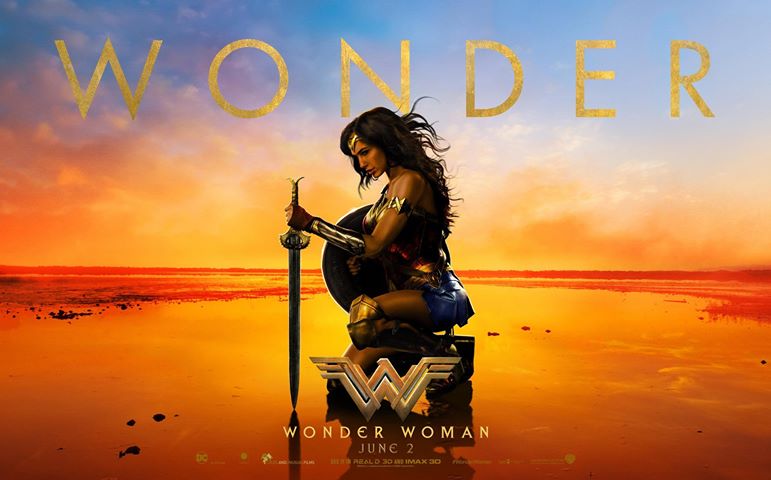

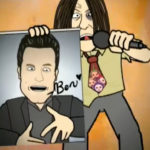
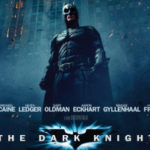
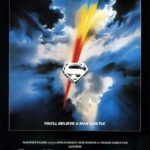
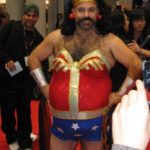



Suicide Squad put me on the “if I see another superhero movie, I will puke” track. I actually did see Logan after that and it wasn’t bad (though the child violence thing was kinda disturbing), mainly because I saw it as a deliberate criticism of the superhero movie genre.
I think the entire genre of superhero films NEEDS to be criticized, for reasons I will not specify here.
So do I really want Wonder Woman to be good/to fix the DC universe? If so, won’t that mean more superhero movies cranked out ad nauseum? I mean EVEN more, because we still will get more than a mouthful whether they are any good or not, as long as the public goes to watch them.
I don’t know, very mixed feelings on my part…
Now you’ve left us all curious about those unspecified reasons!
Indeed, Suicide Squad was a mess. Surely even the most ardent critics of Batman v Superman: Dawn of Justice concede what they liked about the film (such as the figure of Diana herself, which belies the claim that one director only wants to ruin and deconstruct good heroes). Even some critics can tell what the movie was trying to do. However, I’m not sure what Suicide Squad was trying to do. My pessimistic side answers “sell Harley Quinn T-shirts at Hot Topic.” But I’m trying not to be so judgmental!